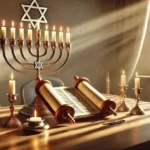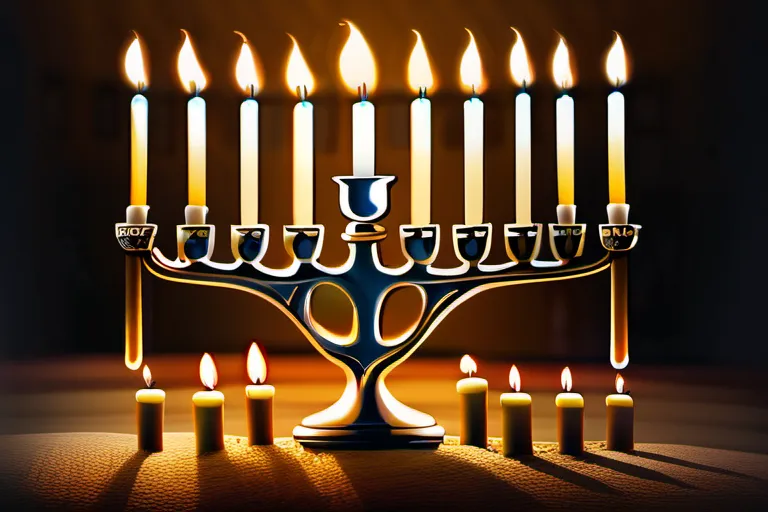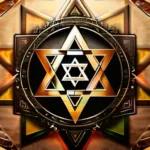Explore the religious, cultural, and historical significance of circumcision in Judaism.
Delve into the ancient practice of circumcision as a fundamental rite in Judaism. Understand its origins, symbolic meaning, and role in Jewish identity.
The Historical Roots of Circumcision in Judaism
Imagine stepping back in time to the ancient land of Israel, where circumcision was not just a ritual but a profound mark etched into history and scripture. It all begins with a single, pivotal moment: God’s covenant with Abraham as described in Genesis 17. The act of circumcision became more than just a physical marking; it transformed into a symbol of faith, tradition, and identity.
How could such an intimate and permanent rite become so central to Jewish practice? Consider the metaphor: Circumcision is like carving initials on a piece of wood—permanently inscribed, serving as a reminder of one’s connection to something greater. In this case, it’s a bond with God that transcends generations.
Over centuries, circumcision evolved beyond its initial commandment. It became intertwined with cultural identity, a marker distinguishing Jews from others. Is it not true that in every community, certain rites of passage help define who we are? Circumcision does exactly that for the Jewish people, weaving through their history like a thread.
Reflect on how this ritual has stood the test of time, adapting yet remaining steadfast. From ancient scrolls to modern synagogues, circumcision remains a critical part of Jewish life. It’s not merely a religious practice but a bridge connecting the past with the present, echoing across generations and continents. How can such a profound tradition continue to resonate in today’s world?
The historical roots of circumcision in Judaism are a testament to its deep significance. From biblical origins to cultural symbolism, it serves as a powerful reminder of faith and identity. In understanding this ritual, we uncover layers of history that speak directly to the heart of Jewish culture and tradition.
The Symbolic Meaning of Circumcision in Judaism
The symbolic meaning of circumcision in Judaism goes far beyond a simple physical ritual; it’s a profound act that carries deep religious, cultural, and historical significance. Is it merely a physical marking, or does it represent something much more profound? Circumcision serves as a tangible symbol of the covenant between God and His people, as described in Genesis 17. By undergoing this ritual, Jewish males signify their commitment to the covenant, just as a tree signifies its life through its bark.
Circumcision is often seen as a gateway to full membership in the community of Israel. It’s not just about removing flesh; it’s about embracing a spiritual and moral code that defines what it means to be Jewish. The foreskin, in this metaphorical sense, represents the veil between the human soul and divine truth, and its removal is like shedding an old identity to reveal a new one.
The act of circumcision also serves as a reminder of historical events. It’s a daily reminder of the trials and tribulations faced by the Jewish people throughout history, much like a scar that marks survival. In this way, circumcision becomes a form of collective memory, connecting each generation to their ancestors through a shared ritual.
Moreover, circumcision is often discussed in terms of its ethical implications, encouraging individuals to live up to a higher standard of morality and responsibility towards others. It’s a reminder that the path of righteousness is not always easy but necessary for personal and communal growth. Is it possible to truly understand the depth of this ritual without experiencing it personally? And how does one measure the impact of such an act on one’s life and identity?
As we explore the symbolic meaning of circumcision in Judaism, it’s clear that this practice is far more than a religious requirement; it’s a living symbol of faith, community, and identity. It encapsulates the essence of what it means to be Jewish in a world where tradition and modernity often collide.
Circumcision as a Rite of Passage in Judaism
Imagine standing at the threshold, about to step into adulthood—what rites mark this significant transition? In Judaism, one such rite is circumcision, known as brit milah. Is it merely a physical act or does it hold deeper meaning?
Circumcision serves as more than just a symbol; it’s a profound ritual that marks the beginning of a boy’s journey into manhood. This ceremony not only signifies the covenant between God and Abraham but also introduces the child to the rich tapestry of Jewish tradition and heritage.
Just like how crossing a river can signify a new phase in life, circumcision serves as a bridge from childhood to adulthood. It’s a moment that marks the boy’s commitment to observe Jewish law and traditions, much like planting a sapling symbolizes growth and new beginnings.
The ritual itself is steeped in history and significance. The removal of the foreskin isn’t just symbolic; it represents a bond with a long line of ancestors who have undergone this rite. It’s a way to connect the past with the present, ensuring that each generation carries on the legacy of brit milah.
Moreover, circumcision in Judaism is often intertwined with family traditions and communal support. The event brings together relatives and friends, fostering a sense of community and shared responsibility. It’s akin to passing the baton in a relay race—each participant carries on where the previous one left off.
Through this rite, boys learn about their identity as Jews and their role within the broader Jewish community. It’s not just about following rules but understanding the rich history that comes with it. Circumcision stands as a testament to continuity and tradition, a reminder of the ongoing covenant between God and His people.
So, when you witness or participate in brit milah, remember the weight of this ritual. It’s not just a physical marking but a deep-seated commitment to a life filled with meaning and purpose.
The Cultural Significance of Circumcision in Modern Judaism
The Cultural Significance of Circumcision in Modern Judaism: Investigate the contemporary cultural and social importance of circumcision in Jewish communities around the world.
Imagine walking into a Jewish community where every baby boy is welcomed not just by family, but by an ancient tradition that has lasted for centuries. This practice, known as circe
brit milah, or ‘covenant of circumcision,’ holds a unique place in the cultural fabric of Judaism. How does this ritual continue to shape and define Jewish identity today?
For many Jews, circumcision is more than just a physical act; it’s a profound commitment to a community that has faced countless trials over millennia. It’s like planting a seed in the heart of every baby boy, ensuring his connection to history, heritage, and culture. Each circumcision ceremony is not only a celebration but also a reminder of the enduring bond between Jews across time and space.
Consider how this ritual acts as a social glue, binding families together through shared traditions and practices. It’s like weaving a tapestry with threads that connect the past to the present, ensuring continuity in the face of change. In a world where traditions sometimes fade or are abandoned, circumcision stands firm as an unbroken link.
Moreover, it plays a significant role in defining the community’s values and norms. Circumcision isn’t just about hygiene or religious law; it’s deeply intertwined with notions of honor, integrity, and belonging. It’s like a silent promise made between parents and child, reinforcing the idea that being Jewish comes with certain responsibilities and commitments.
As we delve into this practice, we see its enduring relevance in contemporary times. Despite challenges posed by modernity and secularism, circumcision remains a cherished custom. It serves as a powerful statement of resilience and a testament to the strength of the Jewish community. In a world that often seeks to erase cultural markers, circumcision stands tall, reminding us of our shared heritage and common destiny.
Circumcision and Jewish Identity
Imagine walking into a synagogue, surrounded by rows of seats filled with people who share your identity as Jews. What makes you feel like you belong? Is it the shared traditions, the food, or maybe the language? These are all important aspects, but there’s one ritual that binds generations together, making each of us feel connected to something greater—circumcision. How does this ancient practice shape our identity as Jews?
When we think about circumcision in Judaism, it’s not just a physical act; it’s a profound symbol of commitment and covenant. The Brit Milah, or the covenant of circumcision, is more than a religious rite—it’s a promise passed down through generations. It’s like engraving your name on a piece of clay, making an indelible mark that signifies your place in the Jewish community.
Consider this: When a baby boy undergoes Brit Milah, he is initiated into a long lineage of Jewish men who have marked themselves with this ritual. It’s as if every circumcision serves as a link, connecting past and present, past generations to future ones. How does it feel to be part of such a legacy?
The act of circumcision also carries deep cultural significance. It’s more than just removing foreskin; it’s about embracing a set of values and expectations that come with being Jewish. Like a tree needing pruning to grow stronger, the ritual of circumcision is seen as necessary for spiritual growth. Does this mean that without circumcision, one cannot fully be considered a Jew?
But beyond these religious and cultural layers, there’s also the personal significance. For many families, Brit Milah is a joyous celebration, a moment to welcome a new member into the fold. It’s like planting a seed that will bloom into a full-fledged adult one day. How do you see your role in this tradition?
Circumcision in Judaism is indeed a multifaceted concept. It intertwines with our sense of identity, our religious duties, and even our familial bonds. As we navigate the complexities of modern life, this ancient practice continues to hold immense value for many Jews. But how do you reconcile your personal beliefs with the tradition?
The Debate Over Circumcision in Judaism
The debate over circumcision in Judaism has been a contentious issue in contemporary Jewish communities, much like a longstanding family feud that keeps resurfacing. How do we reconcile the ancient practice with modern sensibilities? Is circumcision more than just a physical ritual—it’s a profound cultural and religious obligation? Is it not, perhaps, the very act of making a mark on our bodies to signify a mark in history?
Certainly, the debate is multifaceted. On one hand, proponents argue that circumcision strengthens Jewish identity and ties individuals to their ancestors. They see it as a tangible connection to a legacy that stretches back thousands of years. Is it not a reminder of our covenant with God? Critics, however, question its relevance in today’s world, suggesting it is an outdated practice that may cause unnecessary pain or harm.
The discourse surrounding circumcision reveals a broader tension within the Jewish community: how to balance tradition with progress. Some argue for a more flexible approach—perhaps a symbolic circumcision or alternative rituals—that still honors the spirit of the mitzvah without the physical discomfort. Others believe that any deviation from traditional practices dilutes their sacred significance.
As we navigate this debate, it’s crucial to recognize the diverse experiences and perspectives within Jewish communities. Each family’s decision on whether to circumcise is a deeply personal one, influenced by cultural, religious, and medical considerations. Can there be a middle ground that respects tradition while addressing modern concerns?
The ongoing debate over circumcision in Judaism is not just about the ritual itself but also about identity, community, and the evolving nature of faith. It challenges us to consider what it truly means to be Jewish in an ever-changing world.
Conclusion
 Gain insights into the enduring importance of circumcision in Judaism and its impact on Jewish culture and tradition.
Gain insights into the enduring importance of circumcision in Judaism and its impact on Jewish culture and tradition.











